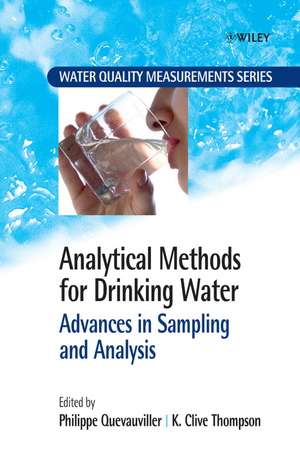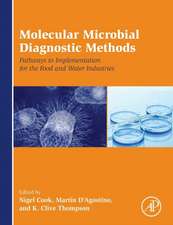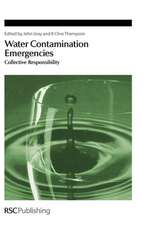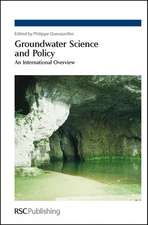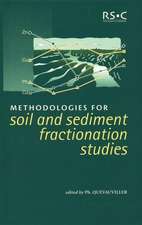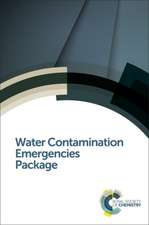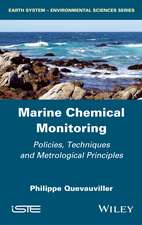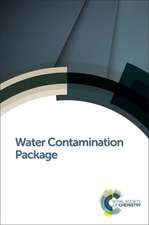Analytical Methods for Drinking Water – Advances in Sampling and Analysis: Water Quality Measurements
Autor P Quevauvilleren Limba Engleză Hardback – 20 oct 2005
This book "Analytical Methods for Drinking Water: Advances in Sampling and Analysis" reflects this awareness in joining recent analytical developments with policy considerations. A first chapter gives an overview of EU and US drinking water policies, as well as on standardization. Analytical developments are described in depth in the second chapter, focusing on bromate in drinking water. The third chapter deals with the development of a sampling protocol for lead in drinking water, thus mixing analytical development with standardization needs. Finally, the fourth chapter focuses on standardization aspects (pre-normative research) related to materials in contact with drinking water.
This book, written by experts in the field of drinking water policy and analysis, illustrates recent scientific advances in this area, which have contributed to policy development and will be of direct use to policy-makers, water scientists, researchers and analytical laboratories.
Preț: 1196.69 lei
Preț vechi: 1315.04 lei
-9% Nou
Puncte Express: 1795
Preț estimativ în valută:
228.99€ • 239.57$ • 190.22£
228.99€ • 239.57$ • 190.22£
Carte tipărită la comandă
Livrare economică 02-16 aprilie
Preluare comenzi: 021 569.72.76
Specificații
ISBN-13: 9780470094914
ISBN-10: 0470094915
Pagini: 200
Dimensiuni: 161 x 235 x 19 mm
Greutate: 0.41 kg
Editura: Wiley
Seria Water Quality Measurements
Locul publicării:Chichester, United Kingdom
ISBN-10: 0470094915
Pagini: 200
Dimensiuni: 161 x 235 x 19 mm
Greutate: 0.41 kg
Editura: Wiley
Seria Water Quality Measurements
Locul publicării:Chichester, United Kingdom
Public țintă
Policy–makers, water scientists, researchers and analytical laboratories.Descriere
Drinking water policies and research are intimately linked. It is thanks to the scientific progress made over the last 25 years in identifying and controlling toxic products in drinking water that regulations have developed in such a way that the protection of public health from waterborne diseases has drastically improved.
